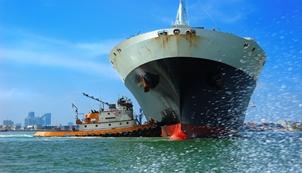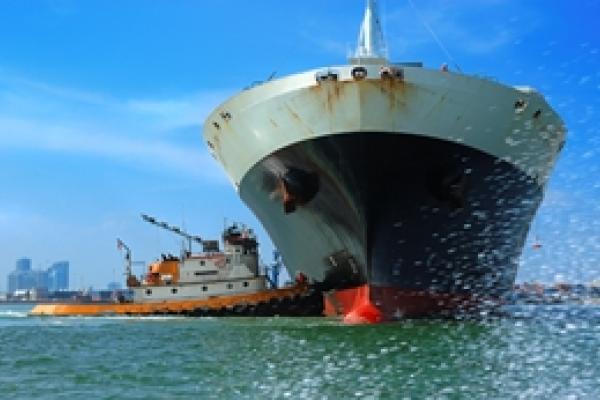
Steamship Mutual
Published: November 01, 2011

In English law a right to salvage arises when a person acting as a volunteer (that is, without any pre-existing contractual or other legal duty so to act) preserves or contributes to preserving at sea any vessel, cargo, freight or other recognised subject of salvage from danger.[1]
The law can impose a binding duty on individuals or companies to act in a particular way in particular circumstances. Any actions taken pursuant to such a duty may not be considered voluntary so that a potential claimant will not be entitled to recover an award of salvage - the essential element of voluntariness is missing.[2]
The Supreme Court of Appeal of South Africa[3] considered this issue in the case of the M.V. “Cleopatra Dream”. This was an appeal against the whole of the first instance judgment and order[4] where the action by Transnet Limited (“Transnet”), the National Port Authority was dismissed. Transnet had claimed a salvage reward from the vessel and cargo interests arising from a salvage operation carried out by tugs belonging to Transnet on 2 April 2004 in the port of Saldanha Bay.
The court approached the matter by considering two questions of law and fact:
1. Whether the salvage operation rendered by Transnet was voluntary and not in the performance of a statutory or common law duty; did the service provided fall outside the scope of normal performance of Transnet’s duties?
2. In the event of it being found to be a salvage operation in the performance of a statutory or common law duty, whether Transnet was entitled to a salvage reward under the provisions of the International Salvage Convention 1989 and the local Tariff Book.
The “Cleopatra Dream”, a bulk carrier of 75,801 gt, was laden with 146,000 mt of iron ore when she departed from the port of Saldanha Bay under compulsory pilotage. The vessel suffered a power failure disabling her main engine and preventing her dropping anchor. It drifted towards the shallow water off Jutten Island within the limits of the port. Notably, the pilot who was employed by Transnet summoned tug assistance from Transnet in an effort to regain control of the vessel. Two port authority tugs attended and subsequently towed the vessel to a safe anchorage in the port. Transnet arrested the “Cleopatra Dream” and her cargo in an action in rem. The claim for salvage services totalled R10 million. Security was issued to obtain release of the vessel.
In their pleadings, the respondent interests of the “Cleopatra Dream” admitted that the services rendered by the appellant Transnet constituted a “salvage operation” under the International Salvage Convention 1989. However, they denied that Transnet was entitled to a salvage reward as the services performed were rendered under a statutory or common law duty and, therefore, not voluntary.
The appellant denied that the services were rendered in the performance of a duty or, in the alternative, that even if the court found that this was the case, it should nevertheless be entitled to a salvage award under the provisions of the Salvage Convention. Additionally, Transnet claimed that as it exercised control over the port, it was entitled to pursue charges set out in the Tariff Book, including reservation of its right to claim a reward for salvage if the services rendered to a ship in distress constitute salvage.
The Court noted that the rationale for disallowing a salvage award to a salvor acting under a pre-existing duty, whether contractual or otherwise, is to discourage any neglect of such a duty which may cause or contribute to danger resulting in salvage, or to dissuade a potential salvor who may be tempted to refuse services rendered in the course of duty to seek a salvage award.
The appeal court examined the statutory duty of the Harbour Authority under the Harbour Regulations and accepted the respondents’ core contention that Transnet’s duty was prescribed and that Transnet had a duty to the port users to make the port reasonably safe for navigation and ensure adequate provision of tugs in the event of an emergency within the port’s jurisdiction. Furthermore, the pilot in summoning the tugs at the time the vessel’s engines failed, did so in accordance with the statutory duties of a pilot navigating a ship under compulsory pilotage.
As to any common law duty, the parties agreed that the appellant had a duty to make the port reasonably safe for navigation. There was a divergence of views as to the extent of what “safe for navigation” encompassed. Transnet submitted that such a duty merely extended to the physical aspects of the conservancy of the port, such as navigational aids and the provision of safe berths. It did not extend to assisting ships to be safe.
The court fostered a broader view. It agreed with respondents that taking a ship without power under tow and preventing it from drifting within the port’s confines, or even stranding, can be considered performance of a duty to make the port safe for navigation to all users. Where such a duty extends to a user in distress, as in the case to hand, then there would be an entitlement on that user to invoke the duty for its own benefit.
The court considered precedents, including the “Citos”.[5] In that case a ship abandoned during a storm and at risk of grounding was boarded by the crew of a General Lighthouse Authority (GLA) vessel which towed the casualty to a place of safety. The crew of the GLA vessel claimed a salvage award, arguing that even if their services were in the execution of a public duty, the owners of the “Citos” could not avail themselves of such a plea as the services were a duty only to the owners of other ships. In the judgement, Lord Blackburn of the Scottish Court of Session recorded:
"This denial amounted to an admission that the removal of an abandoned vessel from the fairway was a duty laid upon them, coupled with an averment that the removal of the vessel was not a duty to the owners of the vessel itself but only a duty to the owners of other shipping. In his Lordship’s opinion the object of the powers might be to protect other shipping from the risks of collision with the abandoned vessel: but it was undoubtedly an advantage to the owners of the an abandoned vessel to have their vessel removed from danger of such collision; and, accordingly, it could be said that they had no interest in the performance of a statutory duty laid upon the Commissioners.”
In that case, Lord Blackburn did find that a salvage award might be earned for services rendered in excess of a duty owed by the salvors to the salved vessel where the circumstances were appropriately meritorious.
The appeal court in the “Cleopatra Dream” concluded that the first instance judgment and order was correct; the appellant acted pursuant to both statutory and common law duties. The court also noted that the circumstances in the “Cleopatra Dream” salvage operation did not exceed the ordinary skill or courage in the course of Transnet’s duty to the extent that a salvage award would have been appropriate.
With regard to the second issue, the court had to determine whether the appellant, despite not being a volunteer, was nevertheless entitled to a salvage award by virtue of the provisions of the Salvage Convention, particularly articles 5[6] and 17[7]. When considering whether a public authority is entitled to a salvage award it has to be determined how existing national law regulates a claim for salvage. The appeal judge found that: “the Convention evidences no intention to exclude voluntariness in respect of salvage operations performed by a public authority acting under a duty. Nor is the effects of art 5 read with s2(1) of the Wreck and Salvage Act to amend or supersede the common law”.
The appeal court confirmed the decision of the lower court and ruled that Transnet did not have a right to a salvage award as the scope of operation was carried out in accordance with the normal limits of its duty and not voluntarily.
The case serves to reinforce the approach previously adopted in salvage operations undertaken by public bodies in the course of their statutory duties.
Article by Paul Amos
[1] Reeder, Brice on Maritime Law of Salvage 4 ed (2003), London, Sweet and Maxwell, pp. 1
[2] Reeder, supra note 1, at 66.
[3] Transnet v The MV Cleopatra Dream (163/10) [2011] ZASCA 12 (11 March 2011)
[4] Transnet Ltd t/a National Ports Authority v MV Cleopatra Dream [2010] 3 All SA 110 (WCC).
[5] The Citos (1925) 22 Lloyds Rep 275
[6] Article 5 refers to Salvage operations controlled by public authorities. It provides that: 1. The convention shall not affect any provisions of national law or any other convention relating to salvage operations by or under the control of public authorities; 2. Salvors conducting salvage operations shall be entitled to avail themselves of the rights and remedies provided under this convention in respect of salvage operations; 3. The extent to which a public authority under a duty to perform salvage operations can avail itself of the rights and remedies provided for in the Convention shall be determined by the law of the State where such authority is situated.
[7] Article 17 refers to Services rendered under existing contracts. It provides that no payment is due unless the services rendered exceed what can reasonably be considered as due performance of a contract entered in to before the danger arose.


